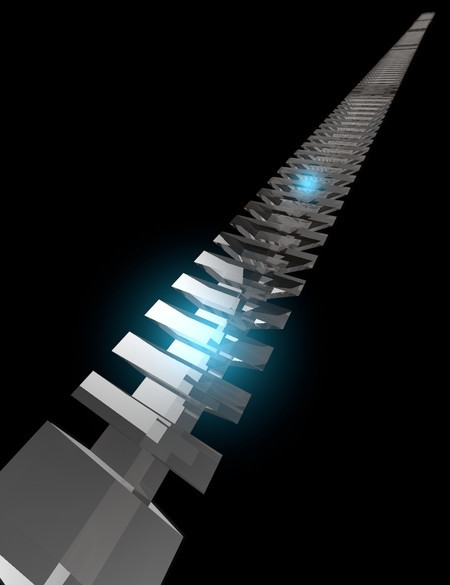Quantum computing breakthrough: Caltech researchers develop chip that can store data in form of light
During initial testing, the chips were able to store 97% of the data for 75 nanoseconds.

In a major breakthrough, researchers from the California Institute of Technology (Caltech) have devised a new way to store quantum information in the form of light by creating the world's smallest optical quantum memory device.
The chip itself is only 700 nanometres wide and 15 microns lengthwise –about the size of a red blood cell, noted Futurism. It is made by creating memory modules in optical cavities inside crystals smeared in rare-earth ions, says the report.
The ions, in turn, make it possible for effective absorption of individual photons fired at it using lasers, the report adds.
When tested, the chips were able to reportedly hold on to 97% of the data, albeit for 75 nanoseconds before it got released. However, the report points out that in order to be a viable component in quantum networking, the chips will need to be able to retain the information for one millisecond, and that is what the team is working to achieve.
Andrei Faraon, assistant professor of applied physics and materials science at Caltech said: "Such a device is an essential component for the future development of optical quantum networks that could be used to transmit quantum information."
Quantum Computers and traditional computers and both store and process data in different ways. Traditional computers store information in binary 1 or 0 values called bits, while quantum computers store data in qubits as either a 1, a 0, or both at the same time.

As protons lack both charge and mass, it is a secure and efficient medium to store quantum data. However, using a single proton to store data on the nanoscale was difficult until this breakthrough, the report said.
"This technology not only leads to extreme miniaturization of quantum memory devices, it also enables better control of the interactions between individual photons and atoms," says Tian Zhong, lead author of the study and a Caltech postdoctoral scholar.
The development comes a week after it was reported that large-scale quantum computer production could become a reality after an Australian team developed flip-flop qubits based on silicon.
MIT was also reported to have devised a way to further mass production by storing data in atomic level imperfections in diamond-like materials.
The Caltech photon chip, however, is under study and is still quite far off from actual production.
© Copyright IBTimes 2025. All rights reserved.





















